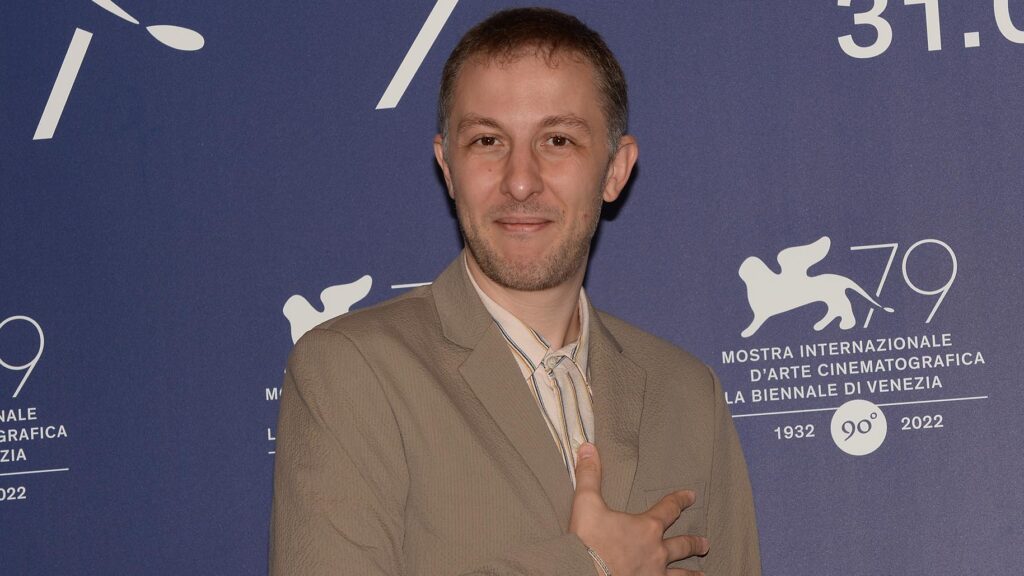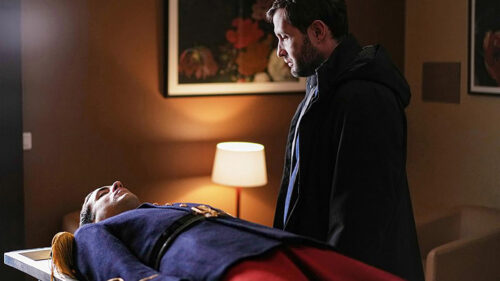
Ten years ago, in the night between the 29th and 30th of October 2012, Jallal Hami, a young sub-lieutenant at the prestigious Saint-Cyr Coëtquidan military school, died after an exercise in ‘passing the tradition forward’ – a formula that means bahutage, or hazing, which is technically disallowed in the schools for the French military élite. Jallal Hami dies at age 24, and France lost one of the brightest men of his generation. Rachid Hami is his elder brother, a director who was at Venice in 2019 with La Mélodie. This year, he tells Jallal’s story in Pour la France.
Why did you tell your brother’s story ten years after the tragedy? Did you want to wait for the trial to end, or did you want your point of view on the story to mature?
RH_I began writing the movie in 2013. This is such a personal story, I wanted to find the right tone and make a movie that wouldn’t be exclusively conditioned by any history I had. I wanted to build a true film object, a fiction film, although based on a real, political, social story. The trial had no influence in the way I portrayed this story, it merely freed some space in my mind. I didn’t want to think about it anymore. This is not a legal drama by any means. I am not making justice with my camera. This is a film about who Jallal Hami was, seen by his brother, Ismaël.
What I wanted to do is to show the continuity in his life: his childhood in Algeria, his growing up in the Parisian banlieue, to his enrolment in the Science-Po University to military academy in Taiwan and later at Saint Cyr, where he died. This is destiny, tragic destiny, though at the same time one that shows that the idea people generally have of marginalized, problematic people is not necessarily correct. Like many other people who live in the banlieues or in rural France, Jallal is an honour student, a positive strength, and an expression of the quality of France’s republicanism. On the other side, his death is a defeat for our society, a system that finds it harder and harder to offer the right opportunities to so many young people.

The script – written by Hami and Ollivier Pourriol – is based on a tragic incident that left a mark on the director’s life in 2012. Twenty-three-year-old Aïssa Saïdi is a young police officer who ends up killed during a hazing ritual at the prestigious military academy...
Karim Leklou, you were cast as Ismaël, the elder brother. You must have felt the weight of responsibility in playing such a role in front of a person who lived this tragedy in first person.
KL What I loved about working with Rachid is that it was always clear that we were making a fiction film. I didn’t feel any particular weight or responsibility. Cinema was what we were doing: framings, motions, techniques… Rachid is a passionate director, I know he didn’t want to make a social movie and run the risk of being emptily magniloquent – he wanted to offer his audience an odyssey, a film that naturally has a social background, but also an adventure that takes place in three continents, thus widening the scope of the narration. It is rare to see a film on lower social classes that is not a political film. This is what I appreciate the most of Pour la France: Rachid’s discretion and his ability to go past the mere facts and show something new and positive.
RH I must add that while the film is based on a real story, I am a director first. What I do is I turn a personal story into a fictional one. There’s something that is intimately mine in what I do, especially the way I work on sequences or the unity I want to impress on my work, which is the way I craft a film that I can call mine.
This is your second time in Venice after La Mélodie of 2019, which you directed while writing Pour la France.
RH I worked at La Mélodie while I was writing Pour la France to do what I set out to do, to give continuity to my work, to give voice to a silent majority. On one side, the pupils in the 400 classes participating in the Paris Philharmonie project (one of such classes is the protagonist in La Mélodie), on the other, the young official Aïssa, who died at Saint-Cyr. All of them offer their own vision of what working-class neighbourhoods look like today. These are places, we shouldn’t forget, where millions of people live their lives. I believe this is what my work is about, today: to show a modern look on modern society.
No results found.